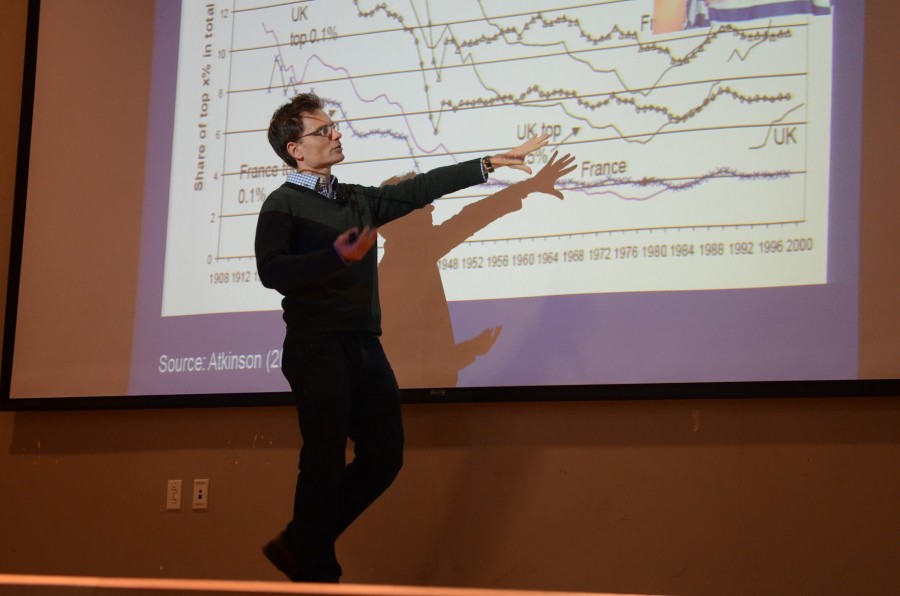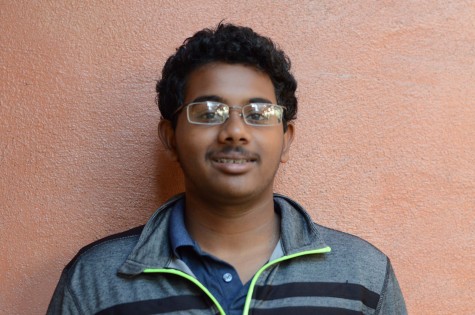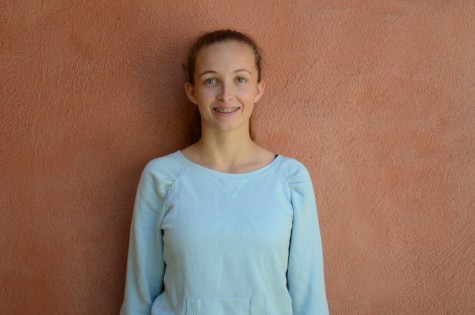Stanford economist analyzes trends and predictions in American economy
Stanford economics professor Nicholas Bloom delivers a presentation entitled “Great Expectations or Hard Times: The Future of the American Economy.”
January 28, 2016
Professor Nicholas Bloom, a Stanford economics professor, spoke in Nichols Auditorium about the prospects of America’s economy and possible solutions to various economic problems on Jan. 20 at 12:30 p.m. in Nichols Auditorium.
Entitled “Great Expectations or Hard Times: The Future of the American Economy,” Bloom’s lecture was organized by Oeconomia, formerly the Harker Economics Society. Professor Bloom’s presentation covered topics ranging from the media’s views of U.S. recession and China’s prospects to America’s economic behavior in relation to post-recession trends to current issues such as education, Europe and inequality.
The business and economics teachers required their students to attend the talk, wanting students to receive economics knowledge outside the classroom.
“All of my students will be graduating from college five years from now,” Samuel Lepler, upper school economics teacher and Oeconomia advisor, said. “And for them, what is coming in that five or ten year period is exactly applicable to what they are going to encounter when their time comes to enter the labor market.”
America’s education system, once among the top in the world, has dropped to fortieth on the Program for International Student Assessment (PISA) rankings. Professor Bloom pointed out that a key problem is that compared to other professions, teachers don’t earn as much.
Europe, with its large governments and tight regulation, has become an increasingly difficult place to do business. On the other hand, countries with smaller governments and looser regulation, such as New Zealand, Hong Kong and Singapore, are among the top places to continue corporations. In conjunction with this, Bloom also discussed past trends in recessions and improvements in the economy and how they compare to the occurrences today.
“I thought it was really interesting, and it was really relevant because we’re learning about GDP, inflation and unemployment in class right now so it was just a good real world application,” Anuva Mittal (11) said. “I didn’t know about the recessions and how they affect the economy, so it was just interesting to see how the economy has fluctuated over the past several years.”
Professor Bloom emphasized the inequality between the top one percent of the American economy and the other 99 percent. The upper class, those who make approximately half a million dollars a year, have much greater economic and health benefits than those in the lower and middle classes.
To solve the problem of inequality, Professor Bloom suggested improving education and increasing taxation to redistribute the wealth.
“Worry about inequality,” Professor Bloom said. “Students here are at the center of it, I suspect that there are quite a lot of students here whose parents and families are in the top one percent. It’s people in that group that can try and change things. You’re also influential; in the top one percent, you’re very wealthy, but you’re also very influential. In terms of what to do, push to fund and reform schools more.”
Though America has problems with inequality and education, Professor Bloom said he was still confident moving here with his family because management in American businesses is extremely efficient and are far safer than in much of the rest of the world.
This piece was originally published in the pages of The Winged Post on January 27, 2016.


















![“[Building nerf blasters] became this outlet of creativity for me that hasn't been matched by anything else. The process [of] making a build complete to your desire is such a painstakingly difficult process, but I've had to learn from [the skills needed from] soldering to proper painting. There's so many different options for everything, if you think about it, it exists. The best part is [that] if it doesn't exist, you can build it yourself," Ishaan Parate said.](https://harkeraquila.com/wp-content/uploads/2022/08/DSC_8149-900x604.jpg)




![“When I came into high school, I was ready to be a follower. But DECA was a game changer for me. It helped me overcome my fear of public speaking, and it's played such a major role in who I've become today. To be able to successfully lead a chapter of 150 students, an officer team and be one of the upperclassmen I once really admired is something I'm [really] proud of,” Anvitha Tummala ('21) said.](https://harkeraquila.com/wp-content/uploads/2021/07/Screen-Shot-2021-07-25-at-9.50.05-AM-900x594.png)







![“I think getting up in the morning and having a sense of purpose [is exciting]. I think without a certain amount of drive, life is kind of obsolete and mundane, and I think having that every single day is what makes each day unique and kind of makes life exciting,” Neymika Jain (12) said.](https://harkeraquila.com/wp-content/uploads/2017/06/Screen-Shot-2017-06-03-at-4.54.16-PM.png)








![“My slogan is ‘slow feet, don’t eat, and I’m hungry.’ You need to run fast to get where you are–you aren't going to get those championships if you aren't fast,” Angel Cervantes (12) said. “I want to do well in school on my tests and in track and win championships for my team. I live by that, [and] I can do that anywhere: in the classroom or on the field.”](https://harkeraquila.com/wp-content/uploads/2018/06/DSC5146-900x601.jpg)
![“[Volleyball has] taught me how to fall correctly, and another thing it taught is that you don’t have to be the best at something to be good at it. If you just hit the ball in a smart way, then it still scores points and you’re good at it. You could be a background player and still make a much bigger impact on the team than you would think,” Anya Gert (’20) said.](https://harkeraquila.com/wp-content/uploads/2020/06/AnnaGert_JinTuan_HoHPhotoEdited-600x900.jpeg)

![“I'm not nearly there yet, but [my confidence has] definitely been getting better since I was pretty shy and timid coming into Harker my freshman year. I know that there's a lot of people that are really confident in what they do, and I really admire them. Everyone's so driven and that has really pushed me to kind of try to find my own place in high school and be more confident,” Alyssa Huang (’20) said.](https://harkeraquila.com/wp-content/uploads/2020/06/AlyssaHuang_EmilyChen_HoHPhoto-900x749.jpeg)












